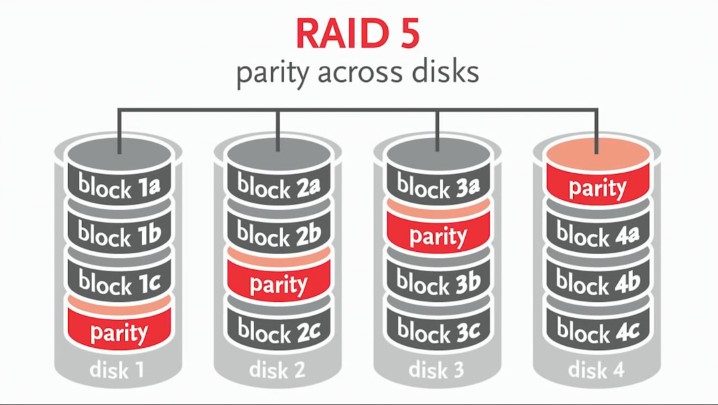It’s easy enough to tell by the name that RAID data recovery has something to do with recovering lost data but if you’re like most people, you’re probably wondering what RAID means.
The term RAID means Redundant Array of Independent Disks. It’s one form of technology which combines the multiple components of a multiple disk drive into one logical unit for data redundancy and to improve the performance of the drive. RAID protects prevents the total and non-recoverable corruption of files.
RAID is configured into different levels and each level affects how data is recovered and how much of that data can be recovered. The different RAID configurations are JBOD, 1, 0, 5, nested RAID, among others. You will plenty of information online on the differences between them.
RAID data recovery is a complex process and you will need to enlist the help of data recovery services that have RAID engineers in its payroll. As it is, the configuration does affect the process of data recovery, however, experienced professionals would know how to recover data regardless of configuration.
In order for the process to begin, you need to have your disk manually checked, although there are instances where remote data recovery is possible through remote desktop.
If you need to have RAID data recovery done, the first thing you really need to do is to look for data recovery companies. As with anything else, not all services are created alike and there are companies that do a better job than others. Obviously, you will want to work with a company that has a high recovery rate and extensive experience in working on different configurations. The price should be the least of your concerns, especially when very important data has been lost.
How much it would cost to have your data recovered will really depend on several factors, including RAID configuration level, the failure scenario, the amount of data to be recovered and how badly damaged the drive is.
Engineers typically make clones of each RAID array before performing any repairs. This is very important because it increases the chances of full data recovery.
If you are looking for a professional RAID service fill out the online contact form on the right or call 0800 999 3282 for expert advice and help. Talk with the Data Recovery Hospital team, tell us what the problem is and let us find a solution for you.
If you notice any damage to your RAID system, you should limit further damage by turning off the server. By keeping the power down, you also increase your chances of making a full recovery. Do NOT attempt to rebuild damaged RAID array because it might only make things worse.

